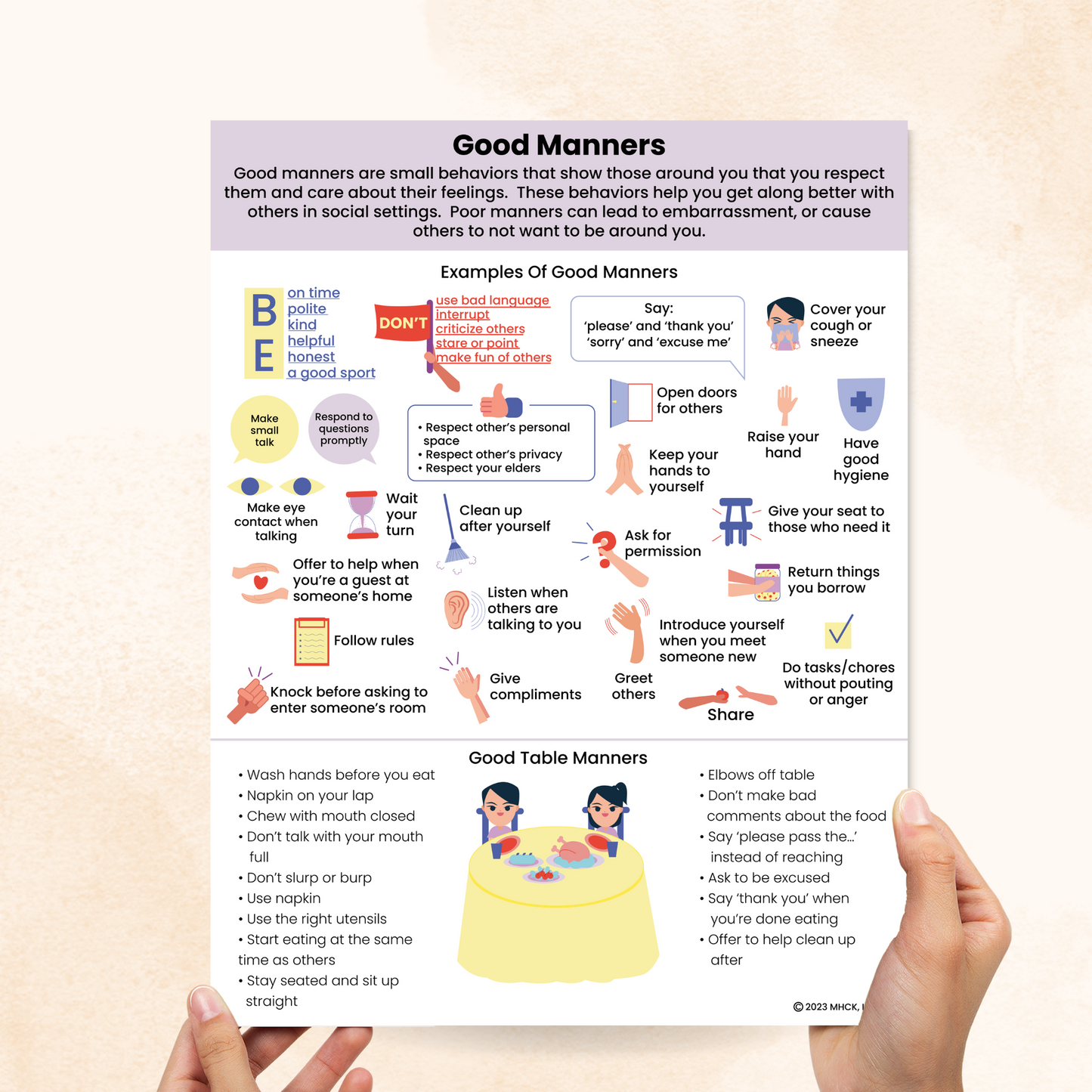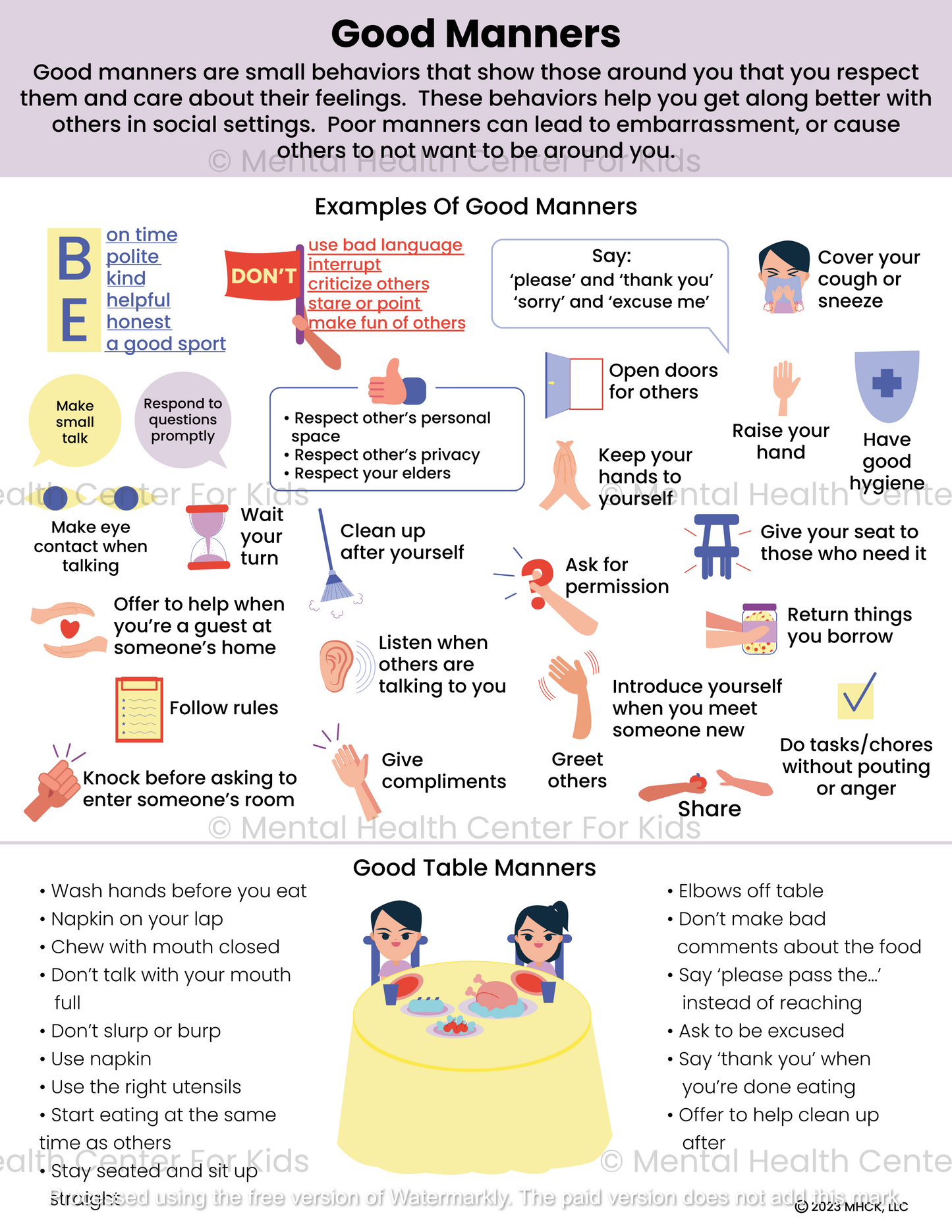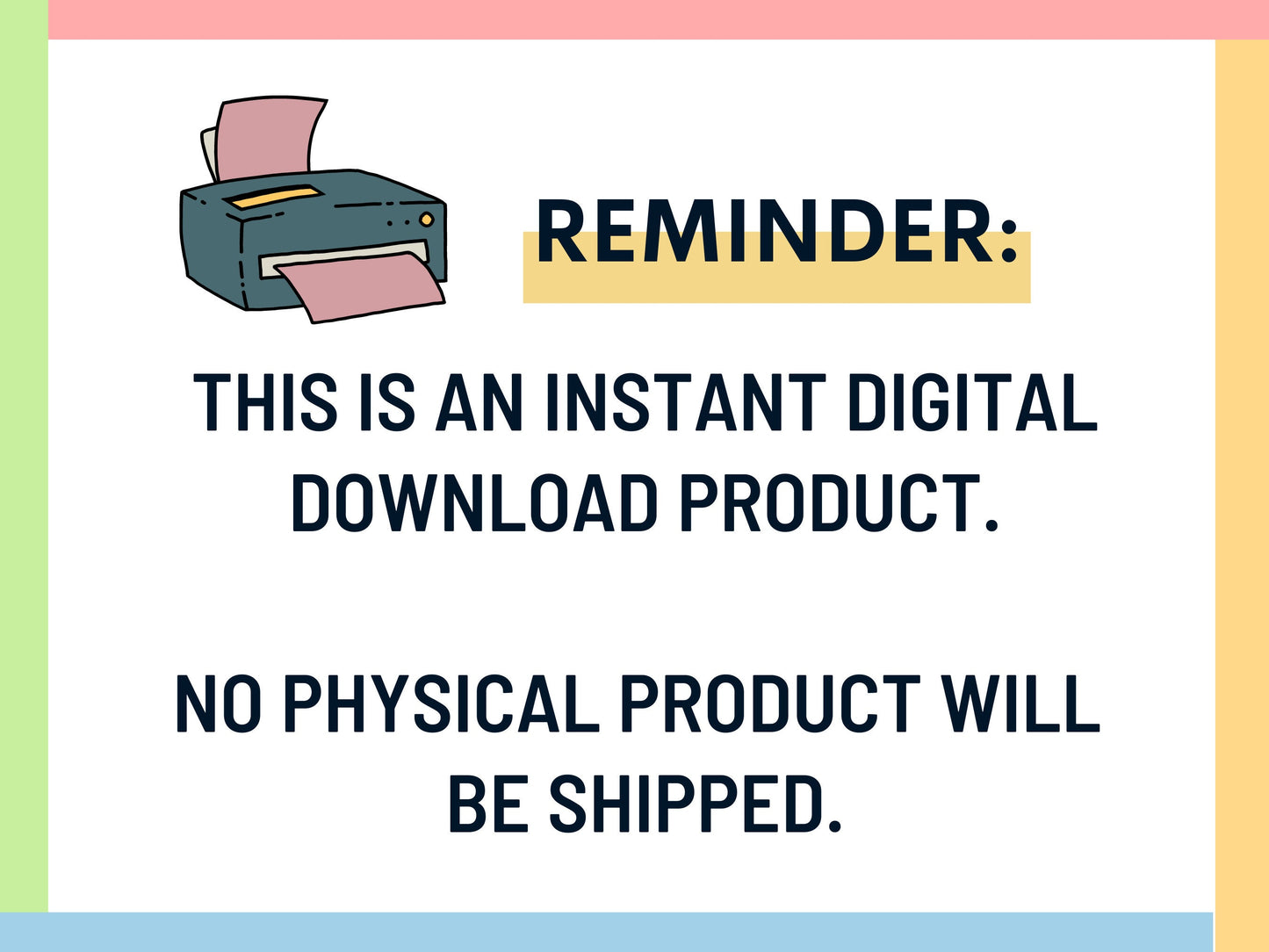All About Good Manners



Good manners are important in everyday interactions and influence how people see and treat each other. While using good manners consistently can be challenging for some, they can be developed with practice, especially when young clients are taught at an early age. Simple habits like saying “please” and “thank you” or thinking about others’ feelings can have a big impact.
The All About Good Manners handout guides clients in understanding the importance of being polite. It explains what good manners are, provides simple examples, and features a list of good table manners.
Using good manners every day helps kids and teens improve their interactions and build emotional awareness. We recommend giving them opportunities to practice these behaviors in different settings, like school, home, or during activities.
Caring adults can support good manners by setting clear expectations and praising polite behavior. Role-playing or discussing real-life situations can also help them see how good manners lead to a positive and friendly environment.
This handout pairs well with our Good Manners worksheets.
*This item is an instant digital download. A link to download your files will be emailed to you once payment is confirmed.
Want more resources like this? Check out our full catalog of social skills worksheets and handouts.
References:
- Buss, S. (1999). Appearing respectful: The moral significance of manners. Ethics, 109(4), 795-826. https://doi.org/10.1086/233946
- Tiwari, R., & Shivhare, N. (2020). Role of moral values and ethics in today’s youth. Juni Khyat (UGC Care Group 1 Listed Journal).
- S., L. (2023). Politeness strategies used by children in requests in relation to age and gender: A case study of Jordanian elementary school students. Frontiers in Education, 8, 1175599. https://doi.org/10.3389/feduc.2023.1175599
- Instant digital download
- File: PDF
- Size: 8.5" x 11"
Amazing handout! Thank you
Easy to use and a great reminder chart. This is 1 page with small sections.




